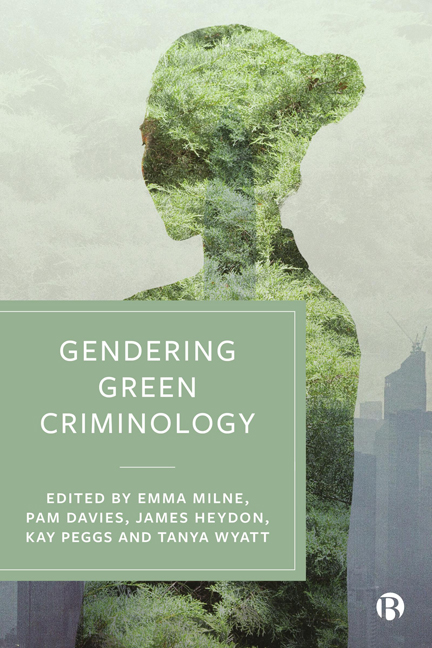9 - Green Victims of the International Waste Industry: An Analysis from a Gender Perspective
Published online by Cambridge University Press: 28 March 2024
Summary
Introduction
The waste management industry has undergone a strong internationalisation process in recent decades. As a result, an export-import flow from countries of the Global North to specific regions and countries of the Global South has been established, which externalises waste management processes and, by extension, the risks and consequences. In many cases, receiving areas are not equipped with appropriate means for handling the waste and protecting both the population and the environment from the severe effects that may be caused by waste pollutants. Thus, despite the efforts of international institutions to prevent those hazards, the transfer of waste from the Global North to certain areas of the Global South still causes great ecological damage and has a major impact on the quality of life and health of the population of the receiving areas.
The international transfer of waste has been extensively studied, especially within the fields of green criminology and green victimology. These disciplines have addressed in depth a wide range of related issues, such as the dynamics of the criminal phenomenon, its relationships with criminal organisations and companies, its consequences from a perspective of ecological justice, social justice and species justice. However, they have overlooked gender.
In general terms, women experience green victimisation differently than men (Lynch, 2018: 408) and victimisation arising from waste crime is not an exception. The way in which waste crime affects women differs from the way in which it affects men for several reasons. First, the social dynamics and gender roles are also reflected in some irregular waste industries, causing different forms of victimisation for men and women. As long as their roles and participation in the waste industries are different, their degree of victimisation also varies. Second, the exposure to pollutants causes different illnesses among men and women. In this sense, the exposure to waste pollutants might have special implications for women's health, especially in terms of reproductive diseases and maternity (Dolk and Vrijheid, 2003; García-Pérez et al, 2015; Kresovich et al, 2019; Melody et al, 2020; Kanner et al, 2021).
The aim of this chapter is to critically analyse waste crime victimisation from a gender perspective in the context of the international waste industry.
- Type
- Chapter
- Information
- Gendering Green Criminology , pp. 170 - 186Publisher: Bristol University PressPrint publication year: 2023

